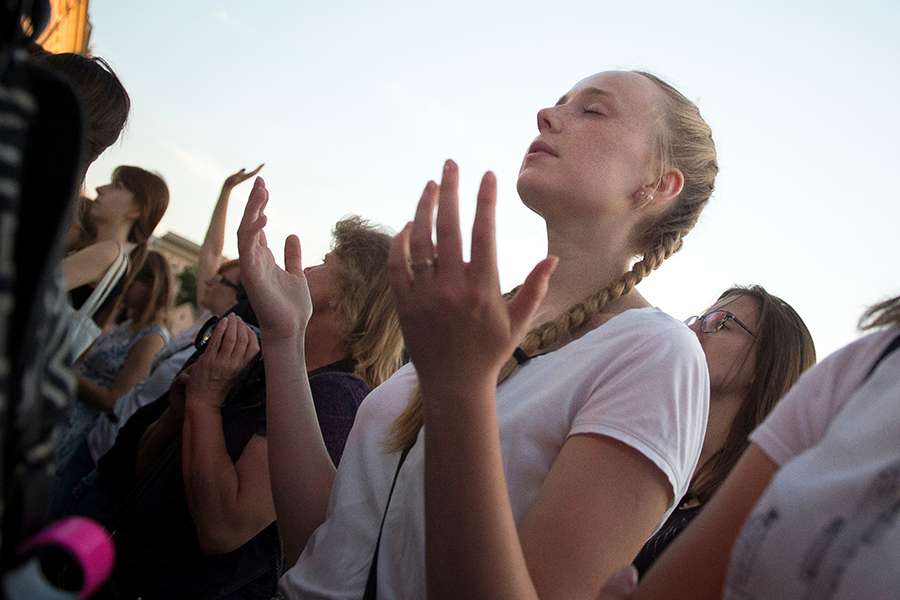
Formation
The essential elements of Christian prayer
December 6, 2019
“My Soul Thirsts for God, for the Living God,” published by Spain’s bishops’ conference in September, speaks powerfully and beautifully about authentic Christian prayer. In today’s column, we’ll consider Part IV of this document, which is titled “The Essential Elements of Christian Prayer.”
The bishops begin considering the essence of prayer by looking at the way Jesus prayed. Coincidentally, I began my columns for this calendar year the same way, with “Pray Like Jesus” (Catholic Voice, Jan. 18) and “Jesus Teaches Us How to Pray” (Feb. 1). Since Jesus is “the only way that leads us to the Father,” “his deeds and sayings are the standard and the primary referent of the Christian life” (“My Soul Thirsts,” no. 21).
How did Jesus pray? He withdrew from the crowds, often praying alone, but sometimes taking one or more disciples with him. He taught his disciples the Our Father, which, as we saw previously, emphasizes our filial relationship with God. The bishops write, “The core of Jesus’ prayer is the communion with the Father, not his desires or the attainment of worldly happiness outside of God. Therefore, the criterion of the authenticity of Christian prayer is to have filial trust in God, to accept that his will always be done, never doubting him and putting oneself at the service of his plan of salvation. To live as if God did not exist is the greatest obstacle for prayer” (no. 22).
Christian prayer, then, recognizes that we are God’s children, through Jesus, in the Holy Spirit. In prayer, we entrust our cares to God. We address him with faith, love and reverence. But prayer does not stand on its own. A virtuous life must accompany prayer. Prayer is not magic and God is not Santa Claus, let alone a vending machine. If we “live as if God did not exist,” we cannot expect him to answer our prayers; we cannot expect to attain the goal of prayer, which is communion with God. When we look at prayer in isolation from our moral lives, we risk emphasizing techniques over relationship.
The bishops write, “In this time when it seems that for many people the first problem of prayer is the question of techniques to enter into it, it is remarkable that Jesus did not give any instructions about this. For him, outer simplicity and inner sincerity are more important. This is the key to understanding the Lord’s brief indications on how to pray that he gave to the disciples: life and prayer cannot be separated (cf. Mt 7:21); to present the offering on the altar, it is necessary to be first at peace with the brothers (cf. Mt 5:23-25) … the prayer that God hears is the one born from a humble heart (cf. Lk 18:9-14) …” (no. 24).
As far as the Gospels tell us, Jesus neither practiced nor taught a technique. He taught us to be humble, persevering, penitent and forgiving. He taught us to put God’s will above our own. These are the essentials of Christian prayer. We can be confident that God hears our prayers, not because we have discovered a perfect method, but because we are his children in Christ and he loves us. Praying with this attitude makes us more truly God’s children, as we begin to resemble him in our priorities and loves. Authentic Christian prayer brings us to conversion.
Connie Rossini is a member of St. Peter Parish in Omaha. She is the author of “The Q&A Guide to Mental Prayer,” now available at amazon.com, and five other books on Catholic spirituality.